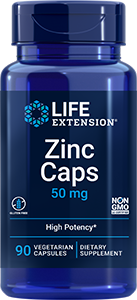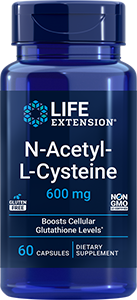
Newsletter
Newsletter
Diabetics who received 1 g of vitamin C daily showed improvements in blood pressure, oxidative stress

Findings from a randomized, double-blind, cross-over trial reported on February 25, 2021 in the Chinese Journal of Physiology revealed an association between intake of vitamin C and a reduction in blood pressure before and after exercise among men and women with type 2 diabetes. “During exercise, mechanical stress on the arterial wall is increased, leading to an increased release of vasodilators by the endothelium (e.g., nitric oxide, bradykinin, etc.),” explained authors C. Boonthongkaew and colleagues at Khon Kaen University in Thailand. “This response can attenuate blood pressure (BP) after acute exercise at low, moderate, and high intensity in normotensive individuals. However, the magnitude of this effect seems to decline in type 2 diabetes patients because of endothelial dysfunction.”
The trial included 24 type 2 diabetics with poorly controlled disease who received 1,000 milligrams vitamin C or a placebo daily for six weeks, followed by a six-week washout period, followed by six weeks of the alternate intervention. For inclusion in the study, participants were required to have a blood pressure of ≤140/90 mmHg or less, maintained if necessary with antihypertensive treatment.
Twenty-minute low-intensity exercise sessions were conducted on the day before and the last day of each treatment period. Blood pressure was measured before, immediately after and 60 minutes after the exercise sessions. Blood samples collected before and after exercise were analyzed for plasma vitamin C levels, markers of lipid peroxidation and nitric oxide concentration.
Compared to pre-intake, participants who received vitamin C experienced an average 12.8 mmHg reduction in systolic BP and an 8.9 mmHg reduction in diastolic BP when at rest before exercise. Immediately after exercise, systolic and diastolic BP were lower by 11.4 mmHg and 6.8 mmHg, and an hour after exercise, systolic and diastolic BP were lower by 12.5 mmHg and 8.9 mmHg in the vitamin C group compared to baseline values. No significant differences between pre- and post-treatment measurements occurred in the placebo group. When compared to the placebo, participants who received vitamin C also had lower systolic and diastolic BP before and after the post-supplementation exercise sessions.
Post-intake, plasma vitamin C and nitric oxide levels were higher, and markers of lipid peroxidation were lower among vitamin C patients before and immediately after exercise compared to baseline, while the placebo group experienced no significant changes. And when compared to the placebo, vitamin C and nitric oxide were higher and lipid peroxidation markers were lower before and after the exercise session among participants who had received the vitamin.
In their discussion of the findings, the authors remarked that vitamin C’s ability to decrease oxidative stress helps prevent nitric oxide from being degraded by free radicals, which results in higher nitric oxide levels that benefit endothelial function and BP. They announced that the study is the first to report the effect of vitamin C compared to a placebo on BP before and within an hour after exercise. “This study suggests that 6‑week vitamin C [intake] decreased pre-exercise and postexercise blood pressures, possibly due to improved oxidative stress and nitric oxide release,” they concluded.
Products
Apply What You've Learned: Vitamin C
- Vitamin C (ascorbate) is among the most powerful antioxidant nutrients. According to a publication by nutrition researcher Bruce N. Ames and colleagues, “Our data demonstrate that ascorbate is the most effective aqueous-phase antioxidant in human blood plasma and suggest that in humans ascorbate is a physiological antioxidant of major importance for protection against diseases and degenerative processes caused by oxidant stress.”1
- Randomized trials have shown that vitamin C intake is associated with improvements in hypertension, endothelial dysfunction, chronic inflammation, and Helicobacter pylori infection, which are risk factors for cardiovascular diseases and some cancers.2
- While vitamin C is a water-soluble vitamin, there is also a fat-soluble form known as ascorbyl palmitate.
- Due to a genetic mutation, humans are among the few animals who fail to produce their own vitamin C. Since it is challenging to obtain an optimal amount of vitamin C from food alone, intake provides an important boost to vitamin C levels.3
- Furthermore, research has shown that vitamin C enhances nitric oxide synthesis in coronary artery endothelial cells.4,5
References
- Frei B et al. Proc Natl Acad Sci U S A. 1989 Aug;86(16):6377-81.
- Frei B et al. Crit Rev Food Sci Nutr. 2012;52(9):815-29.
- Drouin G et al. Curr Genomics. 2011 Aug; 12(5): 371–378.
- Huang A et al. J Biol Chem. 2000;275(23):17399-17406.
- d'Uscio LV et al. Circ Res. 2003;92(1):88-95
Featured Life Extension Magazine® Article
Brain Protection From New Form of Vitamin B12, by Michael Downey
Health-conscious individuals have been supplementing with methylcobalamin, a bioactive form of vitamin B12, for many years. Methylcobalamin is active in the cytosol, the liquid that exists within the cells. Methylcobalamin helps lower homocysteine, an amino acid that, when elevated, has destructive effects, including harm to the brain.
However, even the best-informed health enthusiast may not be aware of another bioactive form of vitamin B12 known as adenosylcobalamin. Adenosylcobalamin is active in the mitochondria, which are energy-producing organelles within the cells. Research indicates that adenosylcobalamin could help reduce the loss of dopamine, a neurotransmitter associated with reward-motivated behavior in the brain that also plays a role in motor control.
Intake of both active forms of vitamin B12 is optimal to support the health of the brain and body.
What's Hot
Health Concern
Vitamin C, carotenoid, grain intake associated with lower diabetes risk
Studies reported on July 8, 2020 in The BMJ revealed a lower risk of developing type 2 diabetes among men and women who had higher blood levels of carotenoids and vitamin C, or a greater intake of grains in comparison with those who had lower levels.
High Blood Pressure
Blood pressure is the measurement of systolic pressure (maximum pressure during one heartbeat) over diastolic pressure (minimum pressure between heartbeats).
Related Life Extension Magazine® Articles

Vitamin C Reduces Human Mortality
Vitamin C has been found to cut the risk of premature death from cancer, cardiovascular disease, and weakened immune function. In a recent study, people with the highest blood levels of vitamin C demonstrated a 25% lower risk of dying from any cause.

Enhance Your Endothelial Function
Mainstream medicine overlooks the critical role the endothelium plays in maintaining vascular health. With age, nitric oxide production declines, resulting in endothelial dysfunction. Nondrug methods have been identified to boost nitric oxide to help restore function to aging arteries.
Life Extension Magazine® Issue Now Online
A remarkable number of healthy-longevity findings have been published over the past 18 months.





